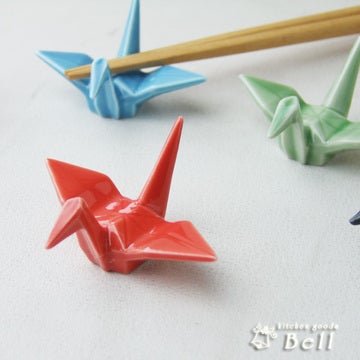夕食の準備
こんにちは。
美紗です。
今日も引き続き
英語で会話を楽しく展開してゆくための、
コツのような物についての記事を
書いていこうと思います。
今回の記事を読んでいただければ
あなたは「英語で会話をする際、
無駄な緊張をせずに話を
続けていけるという」自信を
得ることが出来るでしょう。
ですので、1分間だけ私にあなたの
時間をください。
「時間無いな。」「後回しに。」とあなたが
今この記事を読まなければ
英語で「会話が続かなくて、相手に
気を使いすぎ緊張してしまう」そんな
自分だけの思い込み、
情けない気持ちは
この先も、半月後も3年後も
今の状況は変わることなく
益々悪くなる一方でしょう。
「楽しく会話が続けられない人」
「話がつまらないあの人」
なんていうレッテルを張られたくは
ないですよね。
たった1分だけでいいので
これから書く記事を読み進めて
いただければと思います。
それでは書いていきますね。
英語に限らず会話を
楽しく続けていくコツ
の一つは相槌を打つ事です。
まさに言葉のキャッチボールなんです。
ボール(言葉)受けて投げるの繰り返し、
あなたが日本の友達と
お話をするのとまったく同じなんです。
タイミングよく相槌を打つと
相手の方は
「私の話を聞いていてくれる。」と
気持ちが楽になって
あなたとの会話が
広がってゆくでしょう。
それでは、「英語で会話を
楽しく続けてコツ」
を得るために今回の記事の内容を
最も効率的に体感して頂く為の
具体的なステップを書いていきます。
【ステップ1】
声に出して読む。
【ステップ2】
赤い文字の単語、フレーズを
ノートに書き出し覚える。
【ステップ3】
普段日本の友達との会話の際
意識しなくても顔の表情、しぐさで
相槌をうっていますよね。
どんな相槌があるでしょう?
思い出してみてください。言葉こそ
違っても状況は同じ。
簡単な合槌を覚えておけば
問題なし。
「英語で会話を続けるって楽しい」という
自信をつけて頂く為に上記の内容を
是非実践してみてくださいね。
二人は何を買うのでしょうか?
M :I'm going to prepare ”Shabu Shabu”
for this evening.
A : I've heard about it. My friend told me she had
"Shabu Shabu”in some restaurant in London.
☆ some ~:「ある~ 」(はっきりとは分からない、アンが
レストランの名前を憶えていないから)
She said it was a very healthy cookery with a lot of
vegetables.
近くのスーパーで
M :I'll have this Chinese cabbage、「白菜」
white leek,「長ネギ」、corn daisy,「春菊」
hackberry,「えのきだけ」、
Shitake-mushroom,「椎茸」、carrot,
and sliced yellowtail「薄切りぶり」
broiled tofu「焼き豆腐」、thinly sliced pork
for ”Shabu Shabu”.
We need this sauce, Ponzu sauce.
This brand sauce has a special good flavor.
☆ This brand ~:~の箇所に商品名を入れて
「この銘柄の~」
A :Is that so? 「そうなの?」(これも相槌)
I'll buy this melon for our dessert.
M : I saw my friend, Masako over there !
Hello, Masako. This is my friend from
England. She'll stay with us for a week.
☆ stay with ~:~の箇所に滞在する人の名を
入れて」
A : Nice to meet you、Ann.
Ma : Nice to meet you、too.
M : Please come to us someday,
when you are available.
Let's have tea time together !
☆ be available :「(手が空いて)出来る」
Ma : Sure I will.
I wonder if my poor English may work or not.
☆ I wonder if ~:~の箇所に(かどうか)の
文章を入れて「~かしら」
☆ work「効果がある、通じる、動く等」色々な意味があります。
Have a nice day !!
M : Have a nice day,too,Masako.
Bye !
台所で
M : Cut these vegetables into proper size like this.
☆ In proper~ :~に形、サイズ、長さ、重さ等を入れて
「適当な~に」
Put vegetables on a big plate, like this.
Sliced pork and sliced yellowtail(鰤)on this plate.
Aya, please put them on the dining table.
Aya : OK, Mom. Where is the Ponzu?
M : Here you are.
☆ Here you are : 「(物を渡すとき)ここにあります。」
Aya :Please put chopsticks on this chopsticks rest「箸置き」
like this.
A: OK. They are cute !
M: We are going to cook on the table,
using this cassette stove(カセットコンロ)
This is very easy ,isn't it?
This is our favorite earthen pot.「土鍋」
I put some water and soak kelp 「昆布」
before boiling for 30 minutes.
This is a simple ”dashi”.
A :Very simple ,indeed.
「 楽しみです。」(アンは少しずつ日本語
を覚えています。)
M :My husband will come home around 7:00p.m.
Till then ,shall we open this bottle of white wine?
A :I'll open it, give me an opener, please.
M :Here it is.
☆ Here it is:「ここにあります。」
Aya : Here are your wine glasses, I'll have grapefruit juice.
ワインを飲みながら
M :Yesterday evening I called my friend Keiko of Kamakura,
she will be free tomorrow . She said she would waite
for us at 1:00p.m .at Enoshima station with her car.
A :Super !=Wonderful !「( 英国人がよく使う)素晴らしい!」
(これも相槌)
M : Aya、Can you manage while we are away till evening
around 9:00p.m ? I'll leave your supper in the fridge.
or if you like you can make your own supper.
Daddy will be late tomorrow.
Aya : As I have to prepare for the exam,
I'll stay anyway. 「いずれにせよ」
Don't worry,Mom. Enjoy your trip !
A : Aya, do you like English?
You speak very good English.
Aya : Yes ,I do. I can ask Mom, anytime.
A :You are a lucky girl !
M : Shall we go out to see our hydrangeas
in our small garden?
A : Wonderful !
M : Their peak is getting over,but some of them
are still colorful. Hydrangeas symbolize
the rainy season.
Aya: Hydrangeas ”hydra” is derived from ”hydro”
meaning ”water”of Greek.
.
☆ be derived from:~に派生した言語を入れて
「~から派生している。」
I like to study the origin of words.
Many English words are derived from
Greek,Latin,German,French, arn't they ?
A : You are a scholar,Aya !
We have hydrangeas in England,too.
In June ,we have lavender,lirac,tulip,magnolia
and roses.
We can see many pictures on the internet.
M : We can see them later.
My hasbund return ! Hello !
We are here !
T(Tetsuo)) :Nice to meet you ,Ann !
Wellcom to us!
A : こんにちは。
Nice to meet you,too.
Wonderful hydrangeas!
T : Thank you .We cherish 「大切にする。」them.
Arn't you tired ?
A : No,I recovered from jet lag very quick.
T : You are young, Ann.
M :Folks ! To the dining room !
☆ Folks ! :「(家族の)皆さん」
いままでに
どんな場面でどんな相槌が
あったでしょうか?
読み返してみてくださいね。
それでは、最後に今日の記事を
読んでいただきまして
少しでもお役に立てましたら
今すぐ『いいね』ボタンを押してください。
それでは、今日はこの辺で。
最後までお読みいただきまして
ありがとうございます。
明日からの記事も楽しみにしていてください。

